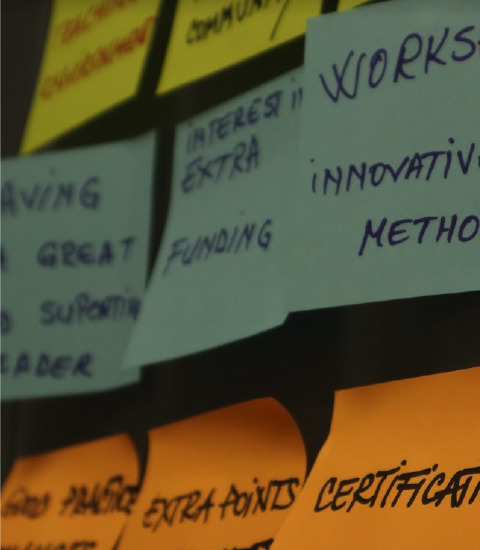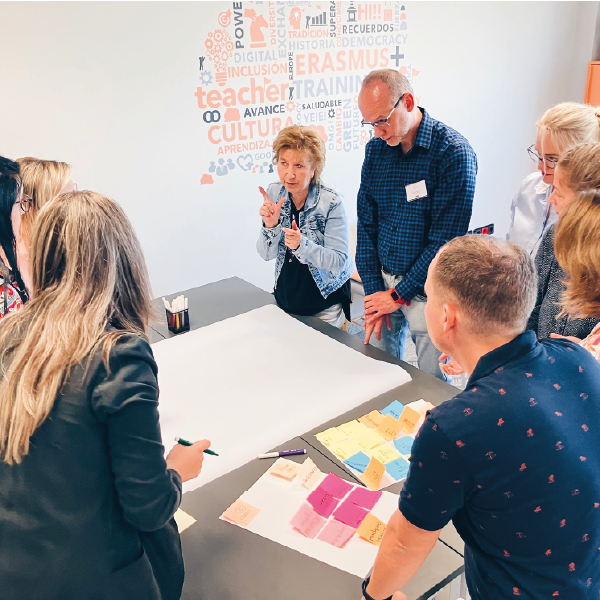Description
Teachers will learn how to make changes in a simple way in the everyday routines and deep ones in long term school habits, culture and community. In this course we will address issues such as boosting cultural knowledge, empathy and critical thinking. The first step is being aware of the institutionalized discrimination, the use of speeches, media and the influence that our culture and ethnocentrism have on us. Once there, we will be able to make more inclusive choices and work with strategies to build cultural inclusiveness education.
The course will help the participants to:
- Contribute to the creation of a new open-minded and all-inclusive school.
- Promote school and social inclusion among students by ensuring reception, integration and avoiding any type of discrimination.
- Give the opportunity to their students or classroom to be more aware and empathetic of each other.
- Be able to detect opportunities to work for change in their communities,
- Foster an environment where students can develop critical thinking, problem-solving, and collaboration skills.
- Provide strategies for gathering student feedback, assessment and measuring learning outcomes.
- Encouraging the working groups to systematize actions in their centres and to move forward.
- Create opportunities for teachers to collaborate, share experiences, and learn from each other.
- Build an international network of educators committed to innovative teaching practices.
We will use a mixture between theoretical and workshops training based on real-life examples. Different strategies (such as Design Thinking and Project Based Learning) enable the participants to develop and to create their solutions for their own professional needs and the needs of their students. During the course, they will have the opportunity to learn (and also teach) alongside other colleagues from different countries and discuss their own projects and experiences. The course includes both individual and team work. Throughout the classroom sessions, maximum advantage is taken of tools such as the interactive screen for projecting videos and digital material, and the tables and chairs for setting up the furniture (in the form of an auditorium, forum, coworking, etc.), generating different interchange situations. We will be learning by doing both on laptops with specific software as well as with analogical materials such as markers, post-its, whiteboards, and poster boards. One day of the week, a didactic outing called "Museums Day" is proposed, where emblematic spaces of the city are visited –related to the subject of the course and the speciality of the teachers– in order to encourage creativity, connections and exchanges with the local area.
By the end of the training, participants will:
- Be prepared to design and deliver a multicultural and intercultural education plan including assessment and feedback.
- Come up with and create resources based on empathy.
- Be able to use various technological tools to support the teaching and learning process.
- Practice strategies for engaging and motivating students based on learning necessities and using different approaches.
- Be able to think creatively and solve problems in the context of education.
- Take part in a collaborative network of educators for continued learning.
- Be familiar with case studies on effective Game Based Learning integration and the use of gamification tools (e.g., Kahoot!, Genially)
- Be prepared to evaluate student engagement and learning through innovative teaching methods.
NEXT COURSES
Our Pricing
100% funded by the Erasmus+

Services included
- Pre-arrival information.
- Tuition & training materials.
- Coffee break.
- Admin & organizational costs.
services
- Accommodation (hotels & self-catering apartments).
- Half-day and one-day trips.
- Cultural activities.
- Airport transfer.
- Local transport.
We want to read you
Reach out to us using our contact form and we will get back to you shortly.

